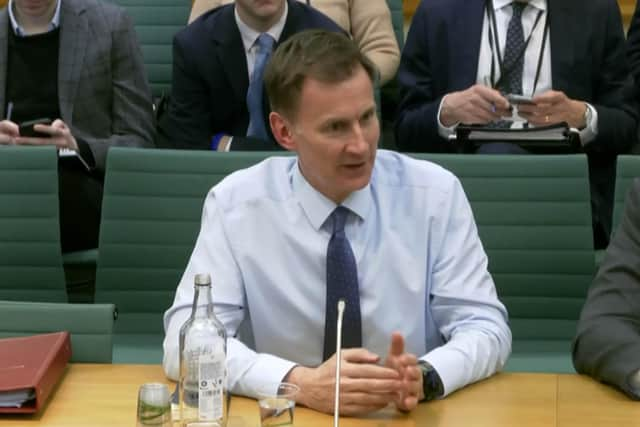Serious financial worries for policing following the Chancellor’s budget - Dr Alan Billings
So winners and losers – so called Protected and Unprotected Departments. The Protected departments included the Department of Health – the NHS. The Unprotected included the Home Office and the Ministry of Justice – the police, the courts, the prisons; they face below inflation funding going forward.
It was also made clear that the public sector must improve its productivity: it must do more with fewer human resources. It can do this by making use of new technology, especially artificial intelligence (AI). There are processes that are currently done by people that could be done by automated technology – and far faster and in greater volume.
Advertisement
Hide AdAdvertisement
Hide AdThis can free people to do other things. However, if cashable savings must be made, that will mean taking out those posts; the workforce will have to be reduced.


Since the government requires us to maintain police officer numbers or face financial penalties, any reduction in jobs will have to come from police staff – analysts, or those who work in IT, HR, finance, comms, legal services or force control rooms.
We currently have just over 3,000 officers and about 2,500 staff. But operational officers need the jobs that staff do to support them.
In addition, new technology is expensive and has to be put in place and paid for before any savings can be realised. Ministers understand this, and, as far as policing goes, a little funding – £230m – is to be made available for all forces over coming years to help improve productivity through technology.
Advertisement
Hide AdAdvertisement
Hide AdHow this will be allocated is yet to be disclosed, but it is not a big sum; most of the funding will have to come from each force’s own resources – which might mean using reserves or borrowing.
These are all serious financial worries for policing. Even more serious are the implications for the courts and prisons. Buildings are crumbling, there are big backlogs of cases, and prisons are overcrowded. But there is an inexorable logic that will make this situation even more testing.
As the 20,000 new police officers complete their initial training and begin duties in response and neighbourhood teams, they will start arresting more suspects. More arrests means more charges which means more trials demanding more court time and adding to backlogs. And potentially more offenders who need to be accommodated in already packed prisons.
Is this too gloomy? Or do we need to think every part of this through before we create at every point the perfect storm?
Advertisement
Hide AdAdvertisement
Hide AdLord Justice Edis, a Court of Appeal judge, said that where rape cases had been waiting to come to trial for more than two years, this was ‘an unacceptable state of affairs’. It seems that there are 181 such cases nationally. He would, therefore, ask for these to be prioritised in crown courts and for them to be heard before the end of July this year. Some of them would be retrials and some involved children. The announcement can only be welcomed. The idea that victims – and suspects – have had their lives on hold for more than two years because of court backlogs is appalling.
A shortened version of the Police and Crime Commissioner for South Yorkshire’s latest blog post.
Comment Guidelines
National World encourages reader discussion on our stories. User feedback, insights and back-and-forth exchanges add a rich layer of context to reporting. Please review our Community Guidelines before commenting.